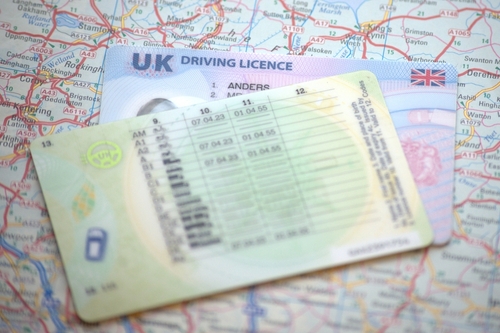Research from private plate supplier Regtransfers reveals an alarming number of Brits unaware of plans to digitise driving licenses this year.
At the start of 2025, the British government announced the launch of a Gov.uk virtual wallet and app for services and documents – including a digital driving licence.
However, a recent study from private plate supplier Regtransfers revealed that over half (57%) of British Road users may be unaware of this shift to digital documentation.
In a study of 1,000 participants – all of whom carried a full or provisional driving licence – only 43% said they were aware of the upcoming changes, which will allow Brits to access and use a digital version of their driver’s licence from their phone. This shift will see mobile phones being able to be used as a means of proving age when buying age restricted items online and in person, as well as proving one’s right to drive.
The technology will make use of security features already built into modern smart phones, but despite this, many expressed concerns around the security of a digitised form of identification.
The risk of identity theft or data breaches stands as one of their primary concerns around digitised driving licenses, with worries about digital surveillance and data misuse being another. In fact, when asked, 41% of study participants said that they had “little to no trust” in the government to manage and protect their personal data.
Regtransfers CEO, Mark Trimbee, said: “There’s no escaping the fact that our lives are being lived in an increasingly digitised space. Putting our driving licences on our phones feels like a natural next step, especially when so many of us already rely on mobiles for everything from banking to boarding passes. That said, a driving licence isn’t just another app – it’s a key part of our identity.
“Our data shows that a lot of people still don’t know much about the government’s proposed changes. That kind of gap in awareness can naturally lead to concerns, or reluctance to adopt. It’s important the government takes the time to explain how it all works, what the benefits are, and – perhaps most importantly – how people’s data will be kept safe. The more informed people are, the more confident they’ll feel about using these new tools.”
When asked if he felt digital licenses should replace card licenses outright, Trimbee added: “I think people should be free to choose whatever they feel most comfortable with. While a digital driving license certainly would be convenient in many cases, a card license doesn’t run the risk of being completely inaccessible if my phone breaks or runs out of battery.”
In the Gov.uk press release, science secretary Peter Kyle said: “Along with CDs, the Walkman and flip phones, the overflowing drawer rammed with letters from the government and hours spent on hold to get a basic appointment will soon be consigned to history. GOV.UK Wallet will mean that every letter or identity document you receive from the government could be issued to you virtually.
“For people who choose to use GOV.UK Wallet, they will find it easier to prove they’re entitled to benefits or check their age when buying alcohol or DIY equipment, with more security and trust than ever before. Crucially, it also opens huge opportunities to make interacting with public services much easier by putting people in control of their own data.
“We will be overhauling how the public sector uses technology which is essential to delivering our Plan for Change, and in combination with this new tech for people to use themselves, we are going to slash the time people waste dealing with annoying processes so they can focus on what matters to them.”
At this time, digital versions are being introduced as an “optional” measure – meaning traditional card licenses will remain valid for the foreseeable future.



